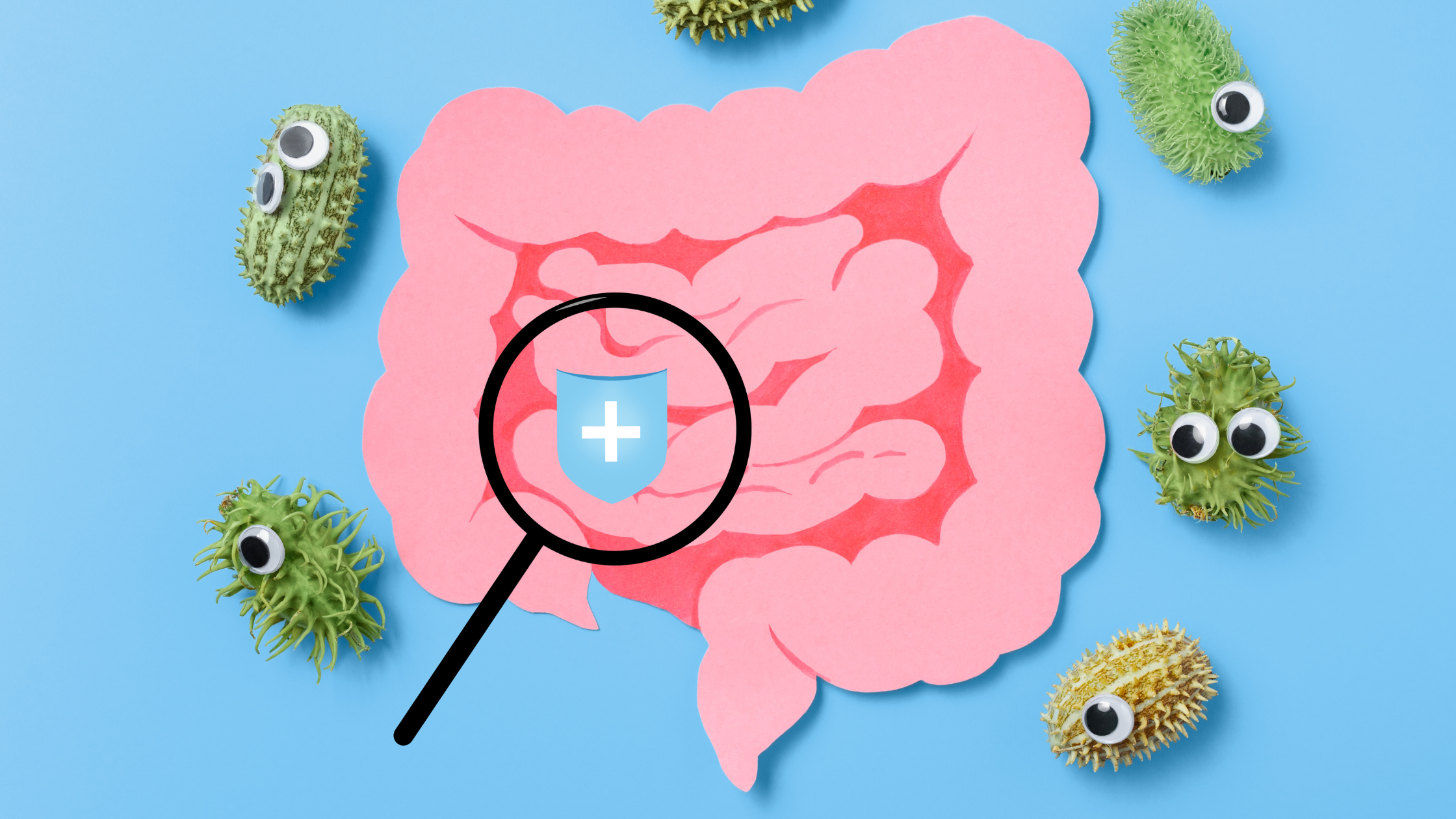Colorectal Cancer on the Rise Among Younger Adults: Signs to Know
Tye Medical Incontinence Products
For more information about the author, click to view their website: TYE Medical
Jun 13, 2025
Florida - Sarasota, Bradenton & Charlotte Counties
Email US
Click to Email UsOver 150,000 people are diagnosed with colorectal cancer each year, and 50,000 die from the condition. Historically, colon cancer has been a disease of middle age, which is when screenings such as colonoscopies are recommended. However, since the 1900s, cases of colon cancer among younger generations have almost doubled. Among Americans ages 18 to 49, it is the number one cause of death due to cancer. Even more concerning are the rising rates of colorectal cancer in children. Conversely, the rates among adults over 50 have been declining, largely due to a decrease in smoking and an increase in screenings. What are the early warning signs of colorectal cancer and how can you reduce your risk?
Causes of Early-Onset Colon Cancer

Obesity is a major risk factor for developing colon cancer before age 50. In recent decades, obesity rates among younger generations have risen, largely due to high-calorie diets and a sedentary lifestyle. Although genetics play an important role in the development of early-onset colorectal cancer, about 80% of those diagnosed with colon cancer under age 50 do not have a genetic predisposition, which means that lifestyle factors are the main culprit.
However, it is possible to live a healthy lifestyle with no known genetic risk factors and still develop early-onset colorectal cancer. This is not as rare as one might think. But the medical field does not have a complete understanding of why this is the case or the underlying reason for otherwise healthy individuals to develop a type of cancer they have not genetically inherited.
Why Healthy People Are Diagnosed with Colon Cancer

If there is no genetic or lifestyle reason for a colon cancer diagnosis, some believe it’s due to a disruption in the gut microbiome. More specifically, the theory suggests that the bacterial composition in the gut has changed for some reason, such as changes in diet or antibiotic use. When the gut microbiome is disrupted in this way, some believe it can cause inflammation in the digestive tract and colon, increasing risk for colorectal cancer and several other diseases.
It’s important to maintain digestive health by eating a variety of healthy foods, including fruits, vegetables, and whole grains. Avoid highly processed meats and take a probiotic supplement daily to keep your colon healthy. You can also reduce your risk by getting regular exercise and avoid being sedentary for too long.
Reduce Your Risk of Colorectal Cancer

You can reduce your risk for many types of cancer, including colorectal cancer, simply by not smoking or avoiding alcohol.
When it comes to diet, it’s important to limit processed foods that often contain chemicals and fillers that promote cancer. This includes processed meats and foods that are high in saturated fats. These tend to trigger inflammation in the intestines and colon.
Instead, try to eat more of the following foods that are associated with a lower risk of colorectal cancer:
- fiber
- fruits
- vegetables
- fish
- beta-carotene
- vitamin C
- vitamin E
- vitamin D
- folate
Produce and plant-based foods contain much nutrition and antioxidants that actually fight against the onset of cancer.
Another major asset for colon cancer prevention is physical activity, which drops the risk by about 30%. This means intentional exercise is key to ensuring your colon remains cancer free. Physical activity keeps your digestive system flowing smoothly and helps ward off inflammation. And perhaps more importantly, it helps prevent obesity, which is a major risk factor for colorectal cancer.
Colorectal Cancer Early Warning Signs

Although often ambiguous, early warning signs of colorectal cancer exist, although you may not make the connection right away.
If you notice any of the following symptoms, you should follow up with your doctor:
- Rectal bleeding (often painless in earliest stages)
- Weight loss
- Abdominal pain
- Change in bowel habits (diarrhea)
- Iron deficiency anemia
Painless rectal bleeding is one of the earliest warning signs that some studies suggest appear two to three years before other symptoms. Additionally, those patients who experience symptoms often wait up to six months before seeing a doctor. This means that advance warnings make early detection possible but patients often don’t react in a timely manner. This is often because symptoms don’t seem serious and could be caused by a variety of benign factors.
No matter your age, if you experience any of the above symptoms more than once, check with your doctor to rule out colorectal cancer.
Colorectal Cancer Screenings Save Lives
According to the U.S. Preventive Services Task Force, the best way to prevent colorectal cancer is to get a colonoscopy. It’s believed this is a major reason for the declining rates among adults over 50. More people are taking the threat seriously and undergoing screenings as recommended.
Colonoscopies can find premalignant polyps, which are unwanted growths that are not yet cancer but will likely turn into cancer. Once discovered these pre-cancer growths are removed to prevent the spread of invasive cancer.
What Can a Colonoscopy Detect?

Colonoscopies are often used to detect colorectal cancer, and healthcare professionals recommend them at regular intervals for screening and early detection. Colonoscopies detect polyps (lesions) in the intestines that are then removed and tested to see if they are benign (non-cancerous), pre-cancerous, or malignant (cancerous).
Colonoscopies can also detect irritable bowel disease or (IBD) which is a condition marked by chronic inflammation of the digestive tract. Two common types are ulcerative colitis and Crohn's disease. It is believed that almost 90% of the time doctors can diagnose IBD using endoscopic techniques like a colonoscopy. This allows them to see, in real time, the condition of the intestines, degree of inflammation, and ulcers present, as well as other symptoms or damage. During the colonoscopy a biopsy can also be taken to help determine a diagnosis.
Colonoscopies can also detect other bowel conditions like:
- Diverticulitis (small pouches form in the walls of your colon)
- Bowel obstruction (the large intestine has become blocked)
- Ulcers not associated with IBD
If you’re experiencing chronic symptoms, your doctor may order a colonoscopy that is more diagnostic than for preventative measures.
However, a colonoscopy can’t detect irritable bowel syndrome (IBS) or any condition affecting your small intestine, gallbladder, pancreas, or stomach.
How Does a Colonoscopy Work?

Colonoscopies are notorious for being unpleasant, which is somewhat valid. It’s a bit of a process as you must prep your bowels the day before and undergo partial sedation to complete the procedure. However, the preventative benefits far outweigh the temporary discomfort and inconvenience, which is why more people are opting for regular colonoscopies as recommended.
It’s important to inform your doctor of your medications, supplements, allergies, and other health conditions before proceeding with the screening.
Prior to the day your colonoscopy is scheduled, you’ll receive instructions for diet and how to perform a bowel prep. It’s important that your large intestines are cleared out and clean before the colonoscopy to allow for improved visibility.
To prep your bowels before the procedure, you’ll be asked to avoid high fiber foods and drink clear liquids only. Additionally, you'll be given specific instructions for using laxatives that will intentionally cause diarrhea, which is necessary to empty your bowel. This usually takes place the evening before the colonoscopy.
Even though a colonoscopy is performed while you’re awake, your doctor will still give you a sedative to keep you relaxed and groggy since the procedure is otherwise uncomfortable. Once the sedative has been administered, you will be asked to lie on a table with your knees pulled to your chest. The healthcare professional will guide the colonoscope to enter your bowel area.
The camera on the end of the colonoscope allows your doctor to view the lining of your large intestine. If a polyp is seen or a tissue sample needed, it will be removed during the procedure for further lab testing.
Once your colon and rectum has been thoroughly examined, the colonoscope is removed. The entire procedure takes under an hour.
Risk and Complications of a Colonoscopy
Although a colonoscopy is considered a safe procedure, complications are still possible.
Potential risks and complications of a colonoscopy include:
- Developing a reaction to the sedative
- Puncturing the large intestine wall (perforation)
- Developing a post-endoscopic infection
Again, these risks and complications are rare but possible.
How to Recover from a Colonoscopy

Once the procedure is complete, medical staff will monitor you until your sedation completely wears off. Although fully awake, you will still need someone to drive you home as you may not feel one hundred percent.
Post-colonoscopy side effects can include:
- Cramping
- Bloating
- Light bleeding (if biopsy taken)
Despite these common side effects, you should be fully recovered by the next day and able to return to work or normal activity. Your test results should be available within a few days and your healthcare provider will follow up to discuss any concerns.
Staying Proactive to Prevent Colorectal Cancer
With the high rates for colorectal cancer in middle age and above and the rising rates among younger generations, it’s important to stay aware and proactive to prevent this deadly disease. An important step is preventing obesity through a healthy diet that avoids high-fat, processed foods and adding fiber-rich choices like fruits and vegetables and including important vitamins and nutrients.
Staying active is another major way to keep colon cancer risks low. It’s also critical that you pay attention to any potential early warning signs and follow up with your doctor quickly when you notice something unusual. Be sure to get regular colonoscopies as recommended by your doctor.
TYE Medical offers premium incontinence products in a variety of sizes and absorbency levels. Shop our online store for free and discreet shipping on all orders.
- To view the original version of this article visit tyemedical.com/blog/colorectal-cancer-on-the-rise-among-younger-adults-signs-to-know/?_gl=1*oge27q*_up*MQ..*_ga*MzkwOTExMjQ1LjE3NDk4Mjg0OTE.*_ga_7DCKK5TSP5*czE3NDk4Mjg0OTEkbzEkZzAkdDE3NDk4Mjg0OTYkajU1JGwwJGgw
- Seniors Blue Book was not involved in the creation of this content.
Other Articles You May Like
Exercise and Diabetes Considerations
Exercise offers numerous health benefits, including lowering blood pressure, managing weight, and reducing stress. Another key benefit is its role in preventing type 2 diabetes. Fortunately, exercise doesnt need to be intense or strenuous to be effective. Activities like walking, gardening, or other enjoyable forms of light exercise can be just as beneficial. However, people with diabetes should keep certain considerations in mind while exercising.Important Considerations for Exercising with Diabetes:Stay Hydrated: Proper hydration is especially important for people with diabetes, as they are more prone to dehydration. Be sure to drink water before and after exercise, and take a water break every 20 minutes during physical activity.Foot Care: Pay attention to your feet. Physical activity can sometimes lead to redness, blisters, or sores. If you notice any sores that arent healing, contact your doctor for guidance.Monitor Blood Glucose Levels: Its crucial to test your blood sugar levels before and after exercise to ensure they are within a safe range. Monitoring your glucose levels helps you understand how exercise affects your body.Consult a Healthcare Professional: Before starting any exercise program, consult a doctor or physical therapist. They can advise you on which exercises are most suitable based on your individual health status.Exercise can greatly benefit people with diabetes, but staying mindful of these key considerations will help make it both safe and effective.
Parkinsons Therapy in Florida
Parkinsons Disease is a progressive neurological disorder that affects movement and coordination. Early signs may include tremors, slowed movement, stiffness, and changes in speech or facial expression. While there is no cure, therapy can significantly improve quality of life. Physical, occupational, and speech therapy can help patients maintain independence, manage symptoms, and slow disease progression. Mind & Mobility is a leading provider of Parkinsons therapy in Florida, offering both in-home and outpatient services.Physical therapy for Parkinsons focuses on improving gait, strength, posture, and flexibility. Therapists may use exercises such as large-amplitude movement training, resistance training, and gait re-education. These interventions help reduce rigidity and improve stride length and balance.Occupational therapy supports patients in performing everyday activities like dressing, writing, and meal preparation. Therapists may recommend adaptive tools and suggest ways to modify the environment to enhance safety and ease.Speech therapy addresses soft speech (hypophonia), swallowing issues, and communication challenges. Techniques such as LSVT LOUD can improve vocal projection and clarity. Swallowing therapy helps avoid complications like aspiration. An early multidisciplinary approach is critical. The sooner therapy begins, the more effective it can be in maintaining function and independence. Regular reassessments ensure the therapy plan evolves with the patients needs. Ultimately, personalized therapy can make a powerful difference in slowing Parkinsons impact and preserving quality of life.In addition to therapy, understanding the stages of Parkinsons Disease can help patients and caregivers anticipate changes and plan accordingly. The Hoehn and Yahr scale, commonly used to classify disease progression, ranges from Stage 1 (mild symptoms affecting one side of the body) to Stage 5 (severe disability requiring full-time care). Each stage brings unique challenges, and therapy plans must evolve to meet the changing needs of the individual.Non-motor symptomssuch as sleep disturbances, constipation, depression, anxiety, and cognitive changesare also common in Parkinsons and often under-recognized. These symptoms can significantly affect quality of life, even when motor symptoms are well managed. Occupational therapists often help address fatigue, energy conservation, and task sequencing, while speech therapists may work on strategies for cognitive-communication deficits. Mental health support and regular medical follow-up are critical.Medications like levodopa remain the cornerstone of Parkinsons treatment, but they are most effective when paired with an active therapy regimen. Exercise, especially high-intensity aerobic activity, has been shown to promote neuroplasticity and may help slow the diseases progression. Programs like Rock Steady Boxing, dance therapy, and aquatic exercise have grown in popularity for their ability to combine movement with enjoyment and social interaction.Caregiver education is another essential component of treatment. Therapists can train family members and aides in safe transfer techniques, cueing strategies, and environmental modifications to prevent falls and reduce caregiver strain. Support groups also provide valuable emotional reinforcement and shared resources for both patients and caregivers.Finally, technology is playing a growing role in Parkinsons management. From smartwatches that track movement patterns to apps that guide home exercise routines, digital tools can enhance therapy compliance and symptom monitoring. Telehealth therapy services are also expanding access to care for those with limited mobility or transportation challenges.The journey with Parkinsons is different for everyone, but early intervention, personalized therapy, and a proactive care plan can dramatically improve outcomes. By integrating physical, occupational, and speech therapy from the onset, individuals with Parkinsons can extend their independence, maintain dignity, and preserve their sense of identity far longer than previously thought possible.Mind & Mobility is a leading provider of Parkinsons therapy in Florida, offering both in-home and outpatient services. With a team of expert physical, occupational, and speech therapistsincluding those certified in LSVT BIG and LOUDMind & Mobility is committed to helping individuals with Parkinsons Disease maintain independence, improve quality of life, and age with dignity. Whether you need intensive one-on-one treatment or ongoing support, Parkinsons therapy in Florida from Mind & Mobility ensures care thats compassionate, evidence-based, and tailored to your journey.
Physical Therapy For ALS: How PT Can Slow Down the Progression of ALS
How Physical Therapy Slows the Progression of ALSAmyotrophic Lateral Sclerosis (ALS), also known as Lou Gehrigs disease, is a progressive neurodegenerative condition that affects nerve cells in the brain and spinal cord. These motor neurons control voluntary muscle movement, and as they degenerate, patients gradually lose the ability to walk, speak, swallow, and eventually breathe. While ALS currently has no cure, one of the most effective ways to manage the disease and maintain quality of life is through physical therapy for ALS.The Role of Physical Therapy in ALS CareThe primary goal of physical therapy for ALS is to preserve mobility and delay the secondary effects of immobility, such as joint stiffness, muscle atrophy, and contractures. A licensed physical therapist helps patients maintain as much independence as possible by designing a personalized plan that evolves with the progression of the disease. This often includes:Range of motion exercises to maintain joint flexibilityGentle resistance training to delay muscle weakeningBalance and gait training to prevent fallsPostural adjustments and positioning techniques for comfort and safetyEarly in the disease, patients can benefit greatly from moderate activity. As ALS progresses, physical therapy shifts focus toward symptom management and maximizing safety and comfort. Its important to note that overexertion can worsen fatigue and muscle breakdown, so therapists skilled in physical therapy for ALS closely monitor activity levels and patient response.Adaptive Equipment and Assistive TechnologyAnother important component of physical therapy for ALS is identifying and introducing assistive devices at the right time. As motor function declines, mobility aids such as ankle-foot orthoses (AFOs), canes, walkers, and eventually wheelchairs become necessary. A physical therapist can evaluate the patients current needs and recommend equipment that supports function without promoting dependence prematurely.Additionally, therapists teach patients and caregivers how to safely transfer in and out of chairs, beds, and cars. Proper techniques reduce injury risk and promote confidence. Positioning aids like wedges and cushions may be recommended to prevent pressure sores and improve respiratory mechanics.Breathing and Postural SupportAs ALS progresses, respiratory muscles weaken, making breathing more difficult. Though this typically falls under respiratory therapy, physical therapists can assist by promoting postural alignment that supports better lung expansion and comfort. They may also coordinate with the rest of the healthcare team to time therapy when breathing function is at its best.Coordination with a Multidisciplinary TeamManaging ALS effectively requires a team-based approach. Physical therapy for ALS works best when integrated with occupational therapy, speech therapy, respiratory therapy, and regular physician oversight. Therapists communicate frequently to adjust care goals, track symptom changes, and ensure that treatment plans reflect the patients current abilities and desires.Occupational therapists help with upper-body tasks and fine motor coordination, while speech-language pathologists support communication and safe swallowing. Physical therapists play a central role in preserving gross motor function and preventing complications related to reduced mobility.Emotional and Caregiver SupportALS impacts more than just the patientit deeply affects families and caregivers. Physical therapists often become trusted partners in care, providing emotional encouragement alongside clinical treatment. They also teach caregivers essential skills such as safe transfers, fall prevention strategies, and body mechanics to protect their own health.As mobility declines, home safety evaluations may be performed to recommend grab bars, ramps, shower chairs, and other modifications that enable patients to continue daily routines as independently as possible.The Long-Term Value of Physical Therapy for ALSWhile physical therapy for ALS does not stop the disease, its value is undeniable. Patients who participate in therapy tend to experience slower functional decline, fewer complications, and higher satisfaction with their care. Therapy helps maintain dignity, preserve autonomy, and extend participation in meaningful activities.At every stage, physical therapy for ALS must be individualized and responsive. Regular reassessments ensure the treatment evolves with the patients needs, and even small winslike maintaining the ability to stand or shift position independentlycan make a significant difference in quality of life.
Local Services By This Author
Tye Medical
Incontinence Supplies , , Florida, 00000It takes collaboration of great minds, a great passion and great brand to successfully foster our global mission to empower the over 33 million Americans suffering from urinary incontinence and the many challenges it can bring to make a smart product choice as their incontinence solution. We are honored to showcase our product and to continuously raise the standards of our customer experience, improve the quality of their life andEmpower their Health.Inspiring a healthier life for everyone, everyday. Contact Julie Wolf today your local Tye Medical Professional in Florida directly at 252-292-8744
TYE Medical
Incontinence Care , , Florida, 00000It takes collaboration of great minds, a great passion and great brand to successfully foster our global mission to empower the over 33 million Americans suffering from urinary incontinence and the many challenges it can bring to make a smart product choice as their incontinence solution. We are honored to showcase our product and to continuously raise the standards of our customer experience, improve the quality of their life andEmpower their Health.Inspiring a healthier life for everyone, everyday. Contact Julie Wolf today your local Tye Medical Professional in Florida directly at 252-292-8744
Tye Medical
Assistive Devices , , Florida, 00000It takes collaboration of great minds, a great passion and great brand to successfully foster our global mission to empower the over 33 million Americans suffering from urinary incontinence and the many challenges it can bring to make a smart product choice as their incontinence solution. We are honored to showcase our product and to continuously raise the standards of our customer experience, improve the quality of their life andEmpower their Health.Inspiring a healthier life for everyone, everyday. Contact Julie Wolf today your local Tye Medical Professional in Florida directly at252-292-8744



